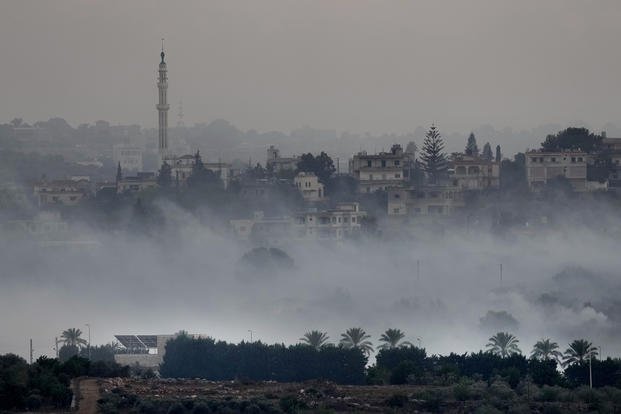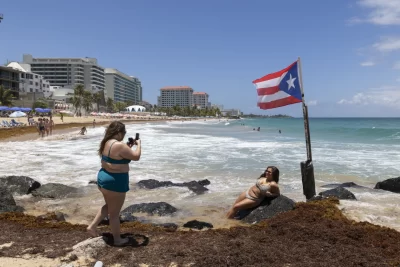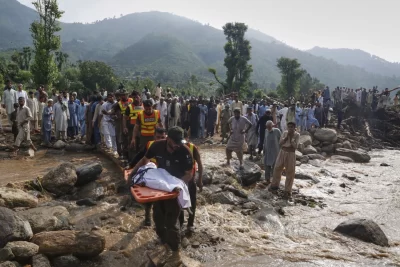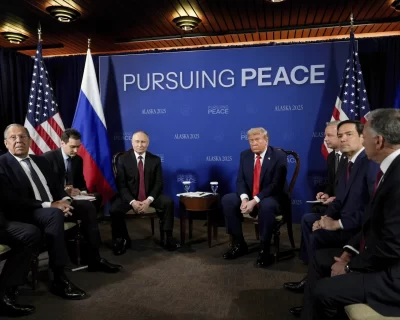
Clashes erupted Tuesday along the Lebanon-Israel border that left five Hezbollah fighters dead, marking the largest number of casualties for the militant group in a single day as tensions with Israel escalate.
Israeli forces and armed groups in Lebanon have engaged in a series of low-level skirmishes since the outbreak of the latest war in Gaza between the Israeli military and the Hamas militant group. Hezbollah has announced the death of 10 militants since skirmishes began.
Israeli military Chief of Staff Herzi Halevi threatened that Israel would retaliate aggressively should Hezbollah escalate.
“This is a war on the home,” Halevi said after meeting with Israeli troops near the northern border with Lebanon. “If Hezbollah makes a mistake, it will be annihilated.”
The escalation comes amid fears that the war could spread into Lebanon, where Hezbollah has expressed strong support to the militant Palestinian group Hamas. Israel considers the heavily-armed group in Lebanon an even bigger threat than Hamas. So far, artillery exchanges between Hezbollah and Israel have been limited to several towns along the border.
Israel and Hezbollah fought a monthlong war in 2006 that ended in a draw. Since then, apart from limited clashes and escalated rhetoric, Hezbollah’s military caliber has significantly increased, and became a key military actor in Syria, Iraq, and elsewhere in the region.
The international community has scrambled to keep the war from extending into Lebanon, and possibly the rest of the region.
An anti-tank missile fired from Lebanon landed in the town of Metula in northern Israel on Tuesday, wounding three people, according to the Ziv Medical Center in Safed.
Hours later, the Lebanese militant group Hezbollah issued a statement claiming responsibility for the attack. It wasn’t clear if the injured were civilians or soldiers, but Israel has ordered civilians to evacuate the area near the border with Lebanon.
Israel responded by striking several areas along the border in southern Lebanon with artillery fire and white phosphorus, the state-run National News Agency in Lebanon reported. The Israeli military said its tanks fired back into Lebanon after an anti-tank missile was launched across the border.
Two more anti-tank missiles were fired from Lebanon at the Yiftah kibbutz in northern Israel without any casualties, the Israeli army said, adding that it had shelled Hezbollah positions in response.
Hezbollah identified the five killed fighters as Mahmoud Baez, Hussien Fasai, Hussein al-Tawil, Mahdi Atwi and Ibrahim al-Dubuq, but didn’t provide further details about their deaths. Hamas said that the bodies of three of their militants in Lebanon had been captured by the Israeli military following a cross-border operation on Oct. 14.
An Israeli army spokesperson said that air defenses intercepted a drone approaching the border from Lebanon.
In separate violence earlier Tuesday, the Israeli military said it killed four militants who had attempted to plant explosive devices on a border wall between Israel and Lebanon. A video from an Israeli army reconnaissance drone showed the militants near the separation wall as they were targeted, causing an explosion.
Hezbollah did not claim responsibility for the attempted cross border attack, nor did any other armed group. However, Hamas and Palestinian Islamic Jihad militants based in Lebanon had done so on previous occasions over the past week.
The Lebanese Red Cross said in a statement that it was en route to collect four bodies killed in Israeli strikes over the southern border town of Alma al-Shaab. A spokesperson declined to provide more details.
Last week, militants from the Palestinian Islamic Jihad in southern Lebanon crossed the border and clashed with Israeli troops, killing three and wounding several others. The militants were killed, and the Palestinian group held funerals for two of them.
Turkey’s foreign minister, Hakkan Fidan, who arrived in Beirut on Tuesday, told reporters after meeting with his Lebanese counterpart that the ongoing war between Israel and Hamas “might lead to greater wars.”
“We are doing all we can so that the war does not spread to other countries,” he said.
___
Associated Press reporters Amy Teibel and Jon Gambrell in Jerusalem and Bassem Mroue in Beirut contributed to this report.





